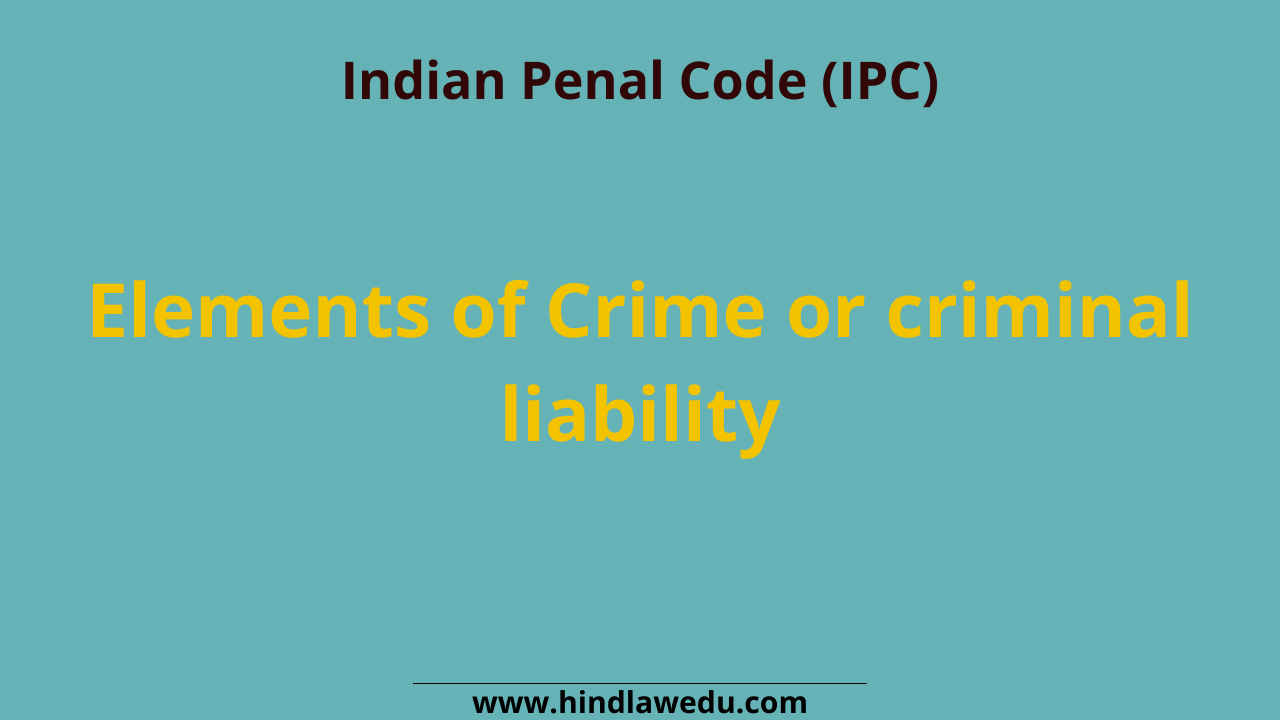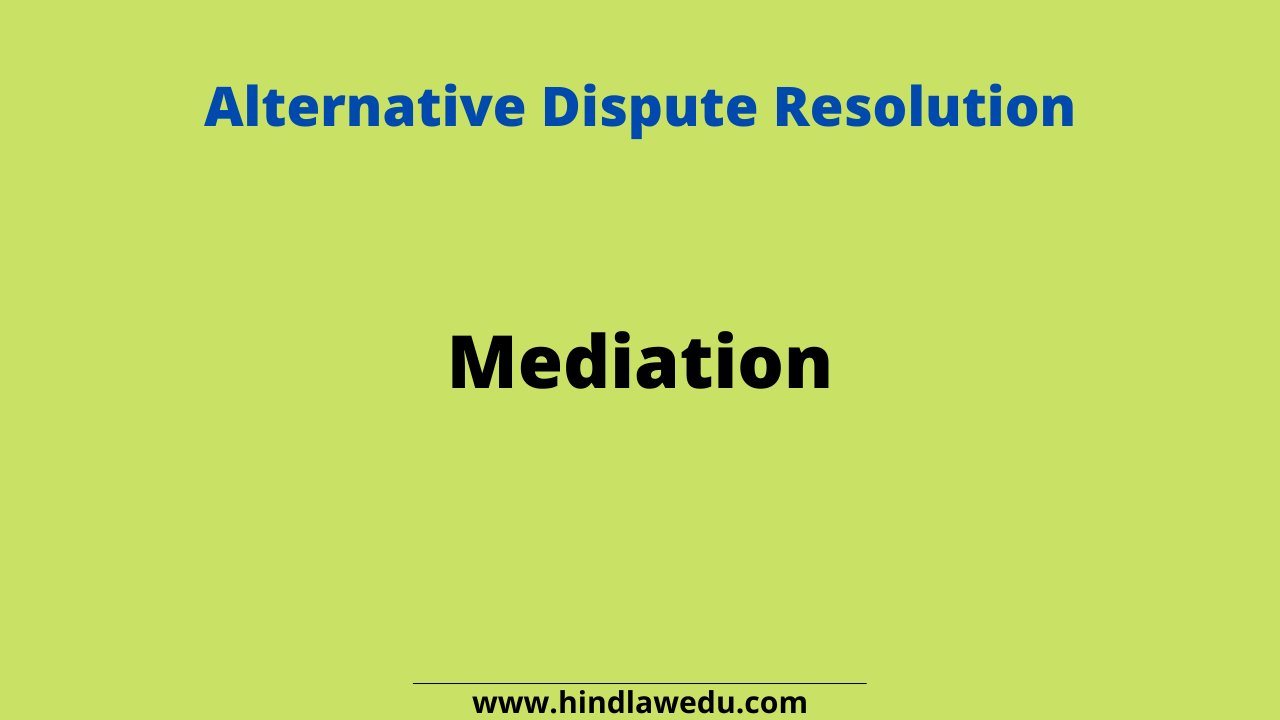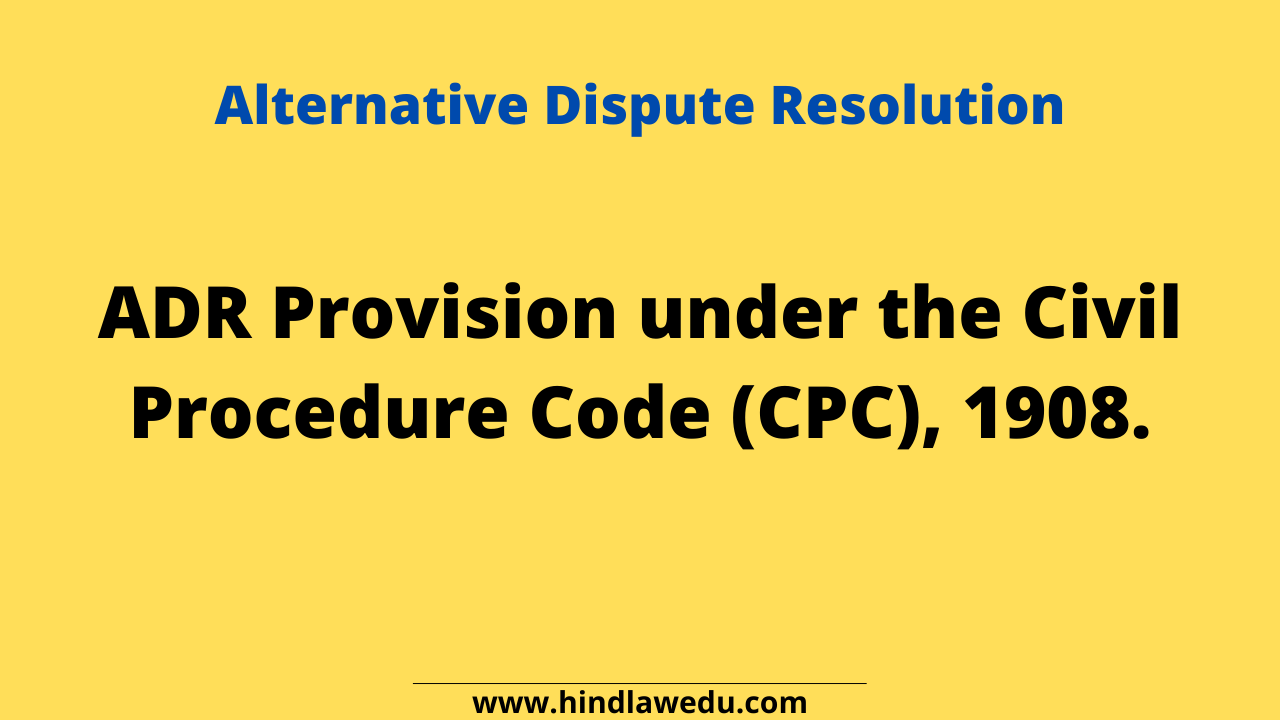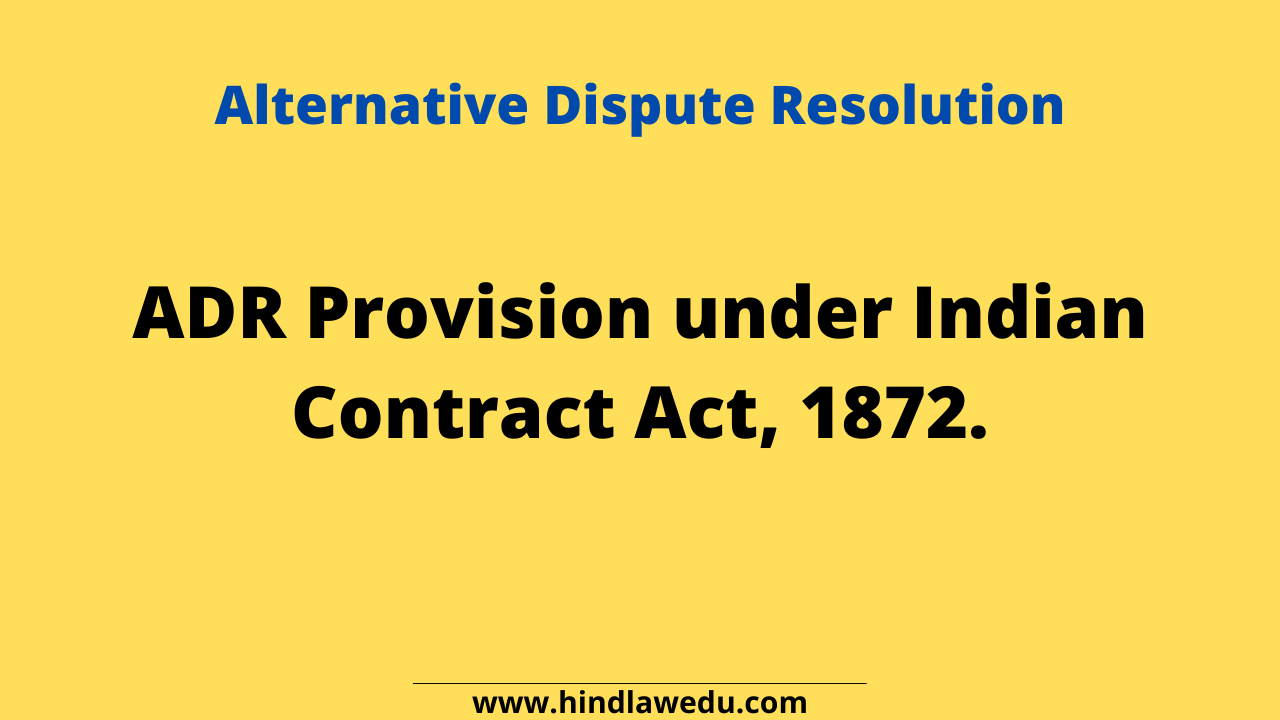Mediation
Mediation is the Alternative Dispute resolution where a third neutral party helps the parties to the dispute to amicably reach an agreement. This is an easy and uncomplicated negotiation process where a third party acts as a mediator to resolve disputes amicably by using appropriate communication and negotiation techniques. This process is totally controlled by the parties.
The Mediator facilitates and assists the parties to reach an acceptable settlement of their dispute. The Mediator never imposes his thoughts and but guides parties towards a decision which leads to a fair settlement. The Mediator merely discusses the perspective of the parties about the possible outcome of litigation. It is also helpful for the mediator to work with parties and their advocates to come to a proper understanding of the best, worst and most likely outcome to the dispute through litigation as that would help the parties to acknowledge the reality and prepare realistic, logical and workable proposals.
Fundamental Rules Of Mediation
1. A neutral mediator to conduct the mediation: A mediator should always be neutral and have no personal or monetary interest in the dispute, or in either party.
2. Self-determination of the parties: Mediation is a process that is based on the self-determination of parties. It means the parties can make free choices keeping their interests in mind. The mediator is thus responsible to conduct the process whereas the parties determine the outcome of the settlement.
3. Confidentiality to be maintained: The very spirit of mediation is its confidentiality. The mediator and the parties shall maintain confidentiality in all the matters relating to the mediation proceedings. The confidentiality shall extend to the settlement agreement, unless there is a necessity for the disclosure.
4. Fair process: The mediation process should be a fair one. The parties should be treated fairly and not arbitrarily and that their concerns should be addressed properly.
5. Voluntary process: The mediation process is impossible without the consent of the parties involved. The parties are bound once they sign the settlement arrived at during mediation.
The Mediator
The mediator is an essential part of a successful mediation. Mediator must be neutral, and must be able to understand the issues or conflict between the parties to assist them in arriving at a mutual and voluntary agreement. A mediator should endeavour to establish a channel between the disputant parties and facilitate the communication process between the parties and during this process the mediator should use language that is mutually applicable. The mediator should use simple words so that both the parties can easily understand.
The mediator should have appropriate posture, a calm-tone and good behavior while dealing with the parties. The mediator should also take into notice the seating arrangement, so it can ensure accessibility, eye contact and audibility. As the mediator controls the process of mediation, he should insist on maintaining decorum and order the parties not to get involved in any heated argument or lose their temper.
Sometimes, even the court may refer for mediation, as it is an easier and quicker process to get a resolution. Specially the divorce mediation in India is the most common method of mediation. The mediation in divorce cases, property cases, family matters etc. helps to keep the matter limited to the parties only which helps in keeping the confidentiality, and does not bring it before the public, and reach a solution maintaining mental peace between the parties.
Also Read:
- Arbitral Award under ADR
- Conciliation under ADR
- Arbitration: Meaning, History, Kinds and Advantages
- ADR System: Advantages And Disadvantages














